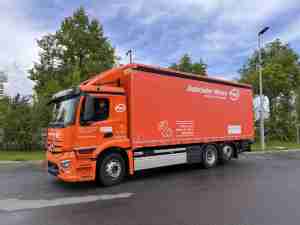European logistics industry poised for upturn in M&A activity, claims new report
posted by AJOT | Dec 17 2014 at 03:19 PM | Logistics
Despite the weak state of the European economy, conditions are right for a significant upturn in mergers and acquisition activity driven by a number of micro-economic drivers, the authors of a new report from Ti claim.
Despite the weak state of the European economy, conditions are right for a significant upturn in mergers and acquisition activity, the authors of a new report from Ti claim. According to analysis contained in ‘European Logistics: Mergers & Acquisitions 2014’, the first report of its type, deals will be driven by a number of micro-economic factors.
· Traditional retailing patterns are changing, due not least to the advance of low cost retailers such as Aldi and Lidl. This will mean logistics companies will need to diversify into other sectors where this a greater demand for value adding logistics services.
· The development of e-commerce will also be a major disruptive force. Logistics companies will need to add niche services both in fulfilment and last mile delivery.
· Technology is becoming the most important competitive differentiator as consumer behaviour and expectations change. Companies with specialist capabilities will be targeted by larger players.
· Near-sourcing will increase the need for logistics capabilities in emerging markets at the periphery of Europe, such as Turkey and North Africa. Geographic expansion through acquisition will be widespread.
· Fast growing sectors, such as healthcare/pharmaceutical, offer higher margin opportunities, especially in the temperature controlled market. Logistics companies will continue to target these niche markets for inorganic expansion, buying operations and capabilities.
· European logistics companies will also be targeted as stronger, profitable Asian companies expand their networks into Europe.
John Manners-Bell, Ti’s CEO commented, ‘Although the European economy has stagnated, the manufacturing and retailing sectors are undergoing systemic change in a market environment influenced not least by e-commerce. This transformation will force logistics companies to seek out new markets, sectors and niches and we believe acquisition activity will increase significantly over the coming years.’









